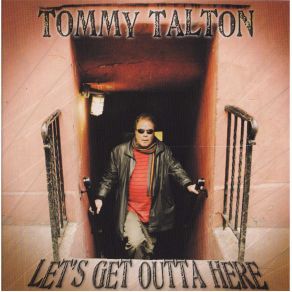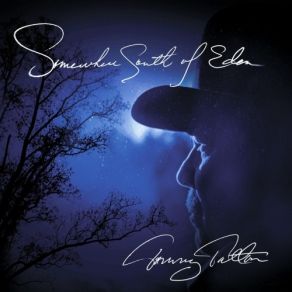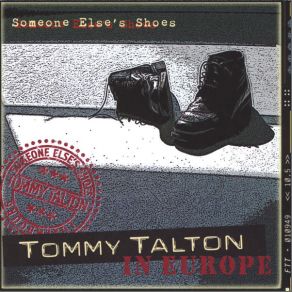Tommy Talton
Wikimp3 information about the music of Tommy Talton. On our website we have 4 albums and 3 collections of artist Tommy Talton. You can find useful information and download songs of this artist. We also know that Tommy Talton represents Blues genres.
Biography
[Edit]Tommy Talton was born too late to be a fan of rock & roll's first wave — opening his eyes to the world in the early '50s, he should have missed Elvis Presley's pre-Army days, but he didn't mostly thanks to his sister, five years his senior, who went around the family's Orlando, FL-area home singing the Memphis Flash's early records, along with those of Nat King Cole and others. His interest in the guitar began at age eight when he saw an instrument owned by one of his uncles and plucked one of the strings, and saw it vibrate and heard the sound it made, and by the time he was 13 he was pursuing the learning of the instrument in earnest.
That coincided just about perfectly with the arrival of the British Invasion, and he became a fan of a local band called the Nonchalants, who eventually became the Offbeets and whose ranks included David Duff on bass, guitar, and vocals; drummer Tomm Wynn; and guitarist Dennis Messimer. It was Messimer's departure for military service in 1966 that left an opening, and an offer to the 16-year-old Talton — who was still a fan of the group — to join the Offbeets, who had already made some professional recordings.
Later in 1966, the Offbeets merged with a group from Leesburg called the Trademarks, and formed We the People. This put Talton into harness alongside that group's lead guitarist, Wayne Proctor, two years older than Talton. They inspired each other with their virtuosity, not only in their playing (where they would switch off between lead and rhythm guitar and bass with Duff) but also their songwriting, and their differences enhanced each other's work, Talton into more straight-ahead rock & roll with a high level of sophistication while Proctor had a penchant for the angular and unexpected. Working both in collaboration and parallel to each other, they generated a strong array of original material, of which the highlights included Talton's "Mirror of Your Mind" and "Lovin' Son of a Gun."
We the People made a decent attempt to break out of central Florida to national recognition but never quite made the leap, instead leaving behind an impressive array of singles for the Challenge and RCA labels. In 1967 Proctor left owing to worries about the military draft, but Talton kept up the quality of his work, turning in "The Day She Dies," an exceptionally beautiful rock ballad that ended up as the B-side of their second RCA single, "Love Is a Beautiful Thing," while his next B-side, "When I Arrive," was a piece of snarling garage punk.
He basically aged out of the group, and ended up leaving at 18, after nearly three years with the Offbeets or We the People. Talton headed to Nashville (where We the People had worked for a time), and then to California, where he turned most of his attention to songwriting. Eventually, he linked up professionally with Scott Boyer, Chuck Leavell, and Bill Stewart to form Cowboy, a country-rock outfit that became a mainstay of Phil Walden's Capricorn Records, and enjoyed an especially close association with Gregg Allman when the latter embarked on his solo career, backing him on his first national tour and the perennially popular live album that resulted.
Talton was also closely associated for a time with Livingston Taylor, and eventually Talton and Boyer became the only two members of Cowboy to stay for the duration, releasing records together until 1977 and the collapse of Capricorn. He also worked with Bill Stewart in T. Talton/B. Stewart/J. Sandlin, along with Capricorn mainstay Johnny Sandlin and singer Bonnie Bramlett, releasing one album in 1976. As a session player — on guitar, mandolin, and Dobro — he also recorded with such diverse figures as Kitty Wells, Dickey Betts, Martin Mull, Johnny Rivers, Sea Level, and Corky Laing during the 1970s. As of the early 21st century, Talton was living in Luxembourg, far from the Southern rock music scene of which he was a part during the 1960s and 1970s.
Title: Tommy Talton In Europe, Someone Else's Shoes
Artist: Tommy Talton
Genre: Blues, Songwriter/Lyricist
Collections
Title: Blues And Rock Ballads Vol. 23 (CD3)
Genre: Rock, Club/Dance
Title: Blues And Rock Ballads Vol. 37 (CD2)
Genre: Rock, Club/Dance






